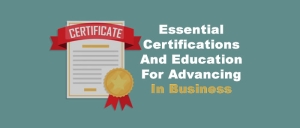
In today’s competitive business environment, technical expertise alone is no longer enough to guarantee success. Employers increasingly value soft skills—personal attributes and interpersonal skills that enable individuals to interact effectively and harmoniously with others. These skills are critical for building relationships, fostering teamwork, and demonstrating leadership. This article explores the key soft skills that can help you stand out in the business world and provides practical tips to develop them.
1. Communication Skills
Effective communication is the cornerstone of professional success. It involves not only clearly expressing your ideas but also actively listening to others. Strong communicators can convey their message in a way that is easily understood, whether in meetings, emails, or presentations.
Why it matters: Clear communication reduces misunderstandings, enhances collaboration, and builds trust.
How to improve Communication Skills:
- Practice active listening by giving full attention and asking clarifying questions.
- Be concise and direct in your messaging.
- Develop your presentation skills to confidently share ideas.
- Use positive body language and tone of voice.
2. Emotional Intelligence (EQ)
Emotional intelligence refers to the ability to understand and manage your own emotions and recognize and influence the emotions of others. High EQ fosters empathy, patience, and adaptability.
Why it matters: Leaders and team members with high EQ can navigate conflicts, motivate others, and create a positive work environment.
- How to improve Emotional Intelligence (EQ):
- Increase self-awareness by reflecting on your emotional responses.
- Practice empathy by considering others’ perspectives.
- Manage stress through mindfulness or relaxation techniques.
- Respond rather than react to challenging situations.
3. Adaptability and Flexibility
The business landscape is constantly changing—technologies evolve, markets shift, and organizational priorities are realigned. Being adaptable allows you to thrive amid change.
Why it matters: Flexible employees are seen as resilient and capable of handling new challenges.
How to improve Adaptability and Flexibility:
- Embrace change as an opportunity to learn.
- Stay open-minded and willing to acquire new skills.
- Be proactive in seeking feedback and making adjustments.
- Cultivate a growth mindset that views setbacks as learning opportunities.
4. Problem-Solving Skills
Critical thinking and problem-solving abilities enable you to analyze situations, identify issues, and develop effective solutions.
Why it matters: Employers value employees who can independently resolve problems and contribute to the organization’s success.
How to improve Problem-Solving Skills:
- Approach problems systematically by breaking them into smaller parts.
- Gather relevant information before making decisions.
- Consider multiple solutions and weigh their pros and cons.
- Learn from past experiences to avoid repeating mistakes.
5. Teamwork and Collaboration
Most organizational tasks require collaboration. Being a reliable team player who can work well with others is essential. Why it matters: Effective teamwork enhances productivity and fosters a positive work culture .
How to improve Teamwork and Collaboration:
- Be respectful and open to others’ ideas.
- Share responsibilities and support team members.
- Communicate your progress and listen to feedback.
- Develop conflict resolution skills to handle disagreements constructively.
6. Time Management and Self-Discipline
Managing your time efficiently ensures that you meet deadlines and maintain productivity. Self-discipline helps you stay focused and committed to your goals.
Why it matters: Good time management demonstrates professionalism and reliability.
How to improve Time Management and Self-Discipline:
- Prioritize tasks using tools like to-do lists or digital calendars.
- Set specific, achievable goals.
- Avoid multitasking to improve focus.
- Limit distractions and take regular breaks.
Conclusion: While technical skills may get your foot in the door, soft skills are what truly distinguish you in the business world. Developing strong communication, emotional intelligence, adaptability, problem-solving, teamwork, and time management skills can significantly enhance your professional reputation and career prospects. Investing in these attributes will not only help you stand out but also position you as a valuable asset in any organization. Remember, soft skills are cultivated over time through conscious effort and practice. By actively working on these areas, you can build a compelling personal brand and achieve sustained success in your business career.



 .jpg)



 Best Investment Opportunities To Grow Your Money
Best Investment Opportunities To Grow Your Money  Workplace Soft Skills That Make You Stand Out in the Business World
Workplace Soft Skills That Make You Stand Out in the Business World  Essential Certifications And Education For Advancing In Business
Essential Certifications And Education For Advancing In Business